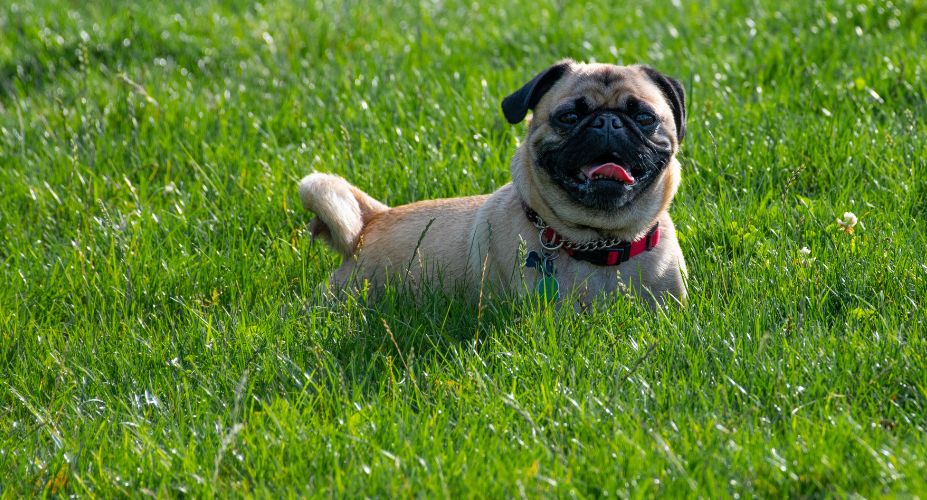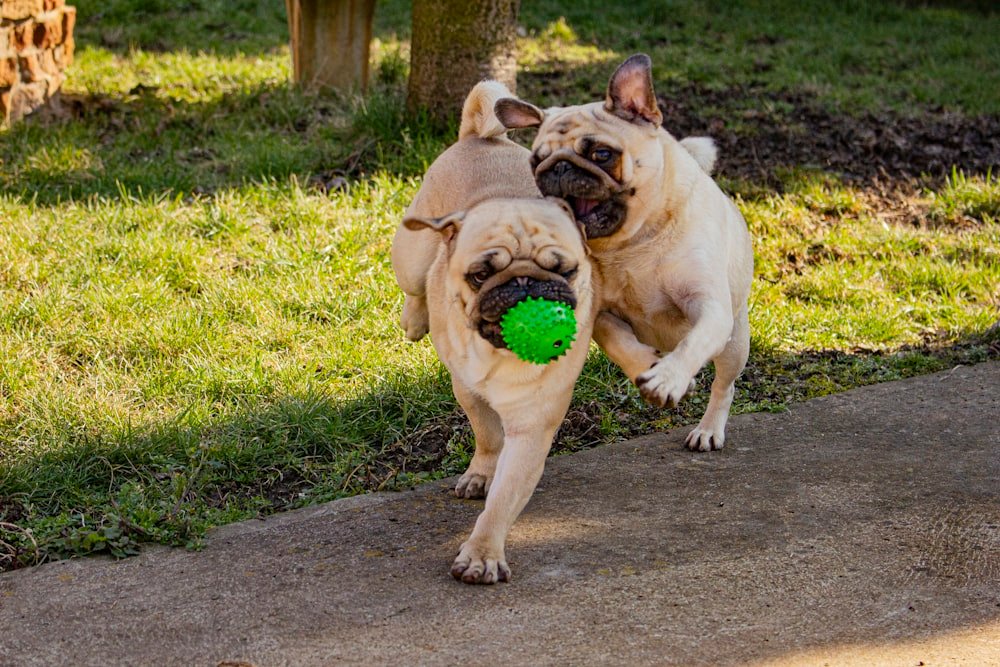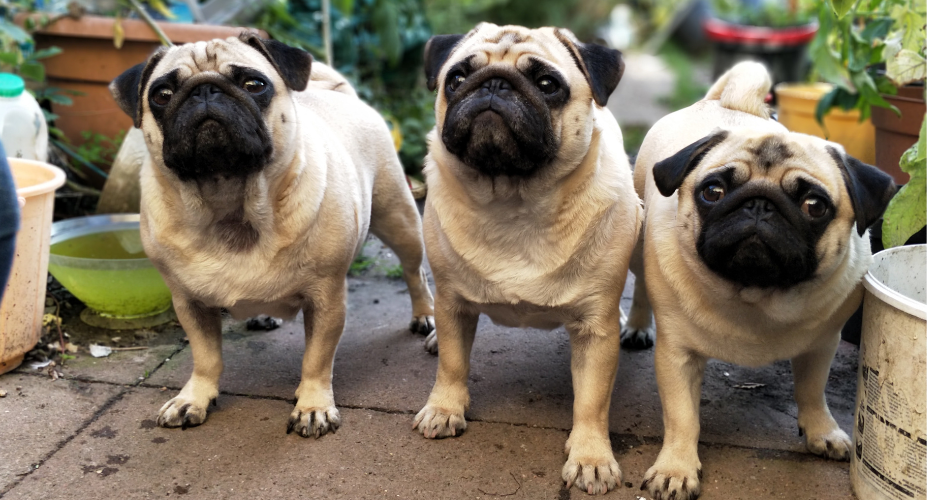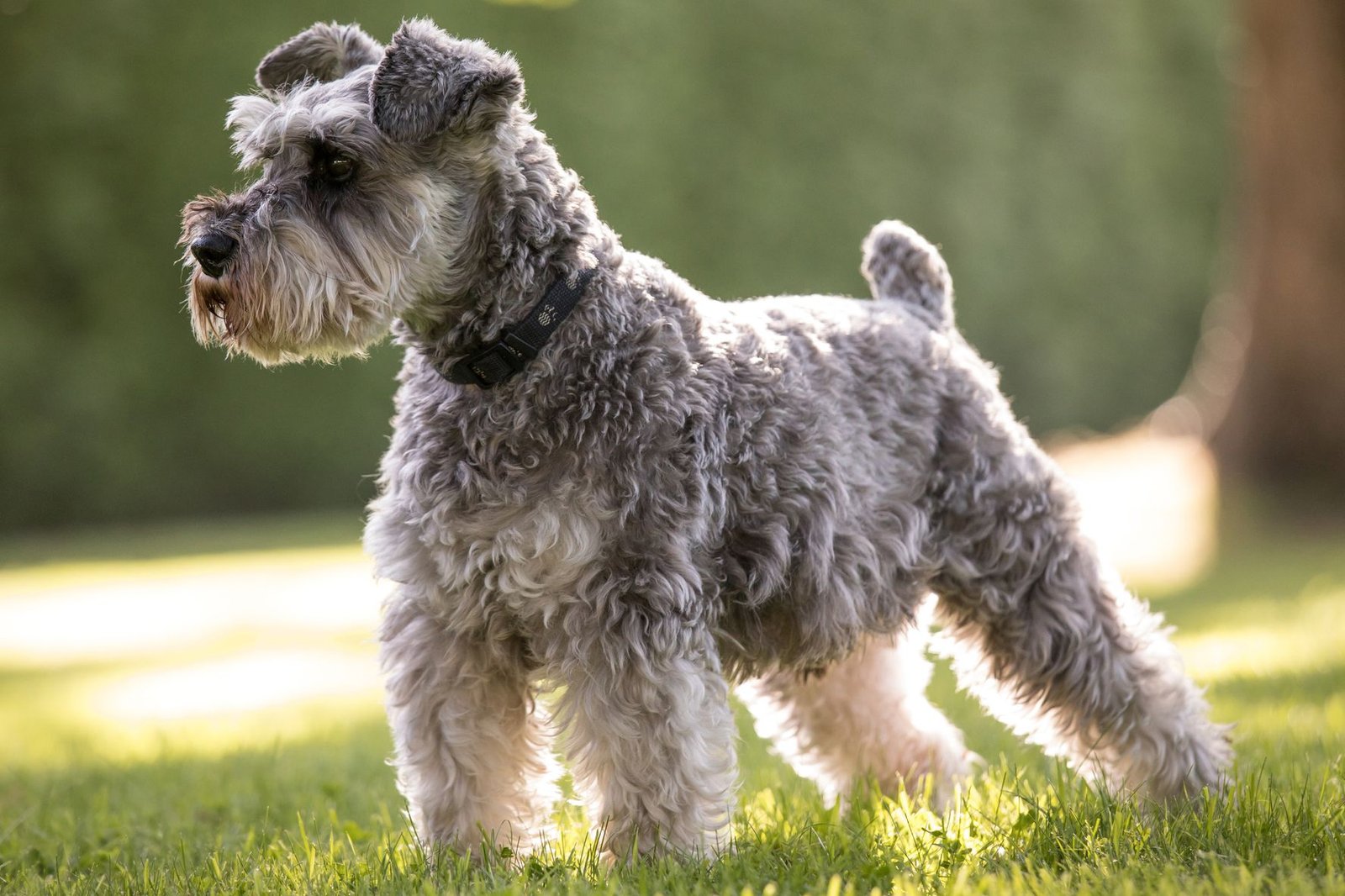Choosing Your Canine Companion: Pug or Miniature Schnauzer
Choosing Your Canine Companion: Pug or Miniature Schnauzer
Imagine you're at a grand masquerade ball, and two enchanting characters catch your eye: the Pug, a jolly jester with a heart of gold, and the Miniature Schnauzer, a dashing musketeer with a quick wit and a protective streak. Both are vying for your affection, each promising a unique tale of companionship and adventure.
The Pug, with its endearing wrinkles and soulful eyes, is like a walking, snorting teddy bear. This cuddly companion is always ready to shower you with love and laughter, whether you're lounging on the couch or frolicking in the park. Pugs are the ultimate couch potatoes, content to spend hours snuggled up next to you, watching your favorite shows, or napping the day away. But don't let their laid-back attitude fool you – when it's playtime, these little jesters come alive, bouncing around with infectious enthusiasm and a zest for life that will melt your heart.
The Miniature Schnauzer is like a pint-sized musketeer, always ready for action and adventure. With their signature beards and expressive eyebrows, these dashing companions have a look of wise sophistication that belies their playful nature. Miniature Schnauzers are agile and alert, eager to explore the world around them and take on any challenge that comes their way. They're the perfect sidekicks for those who appreciate an active, intelligent dog that's as much a guardian as it is a friend. Whether you're hiking through the woods or learning new tricks, these little musketeers will be right by your side, ready to protect and serve.
Choosing between a Pug and a Miniature Schnauzer is like deciding between two enchanting characters at a masquerade ball. Will you be swept off your feet by the Pug's charming, easy-going nature, or will you be captivated by the Miniature Schnauzer's vivacious and protective temperament? Both breeds promise to fill your life with their unique brand of joy and companionship, like two different tales waiting to be written.
Pug or Miniature Schnauzer Overview

|
Feature |
Pug |
Miniature Schnauzer |
|
Origin |
China |
Germany |
|
Size |
Small, 14-18 lbs weight, 12 in. height |
Small, 11-18 lbs weight, 13 in. height |
|
Lifespan |
12-15 years
|
12-14 years
|
|
Coat |
Short, colors include apricot - fawn, black, all with black muzzle or mask, black ears |
Medium length, wiry, colors include salt and pepper, black and silver, black |
|
Temperament |
Even and stable, great charm, outgoing, loving disposition, a bit more serious, with a dry sense of humor
|
Bright, friendly, trainable, hardy, alert, spunky, obedient, quick to learn, devoted to their human packs
|
|
Exercise Needs |
Moderate, 20 minutes/day |
Moderate, 20-40 minutes/day |
|
Grooming Needs |
Moderate
|
Moderate |
|
Social Needs |
High |
High |
|
Drooling |
Low |
Low |
|
Digging |
Low |
Moderate |
|
Club Recognition |
AKC Class: Toy, UKC Class: Companion Dog |
AKC Class: Terrier, UKC Class: Terrier |
|
Other Traits |
Pugs can be stubborn but normally want to please. They are fairly laid-back dogs, not usually given to extensive barking, digging or chewing |
Miniature Schnauzers can be feisty and may put on a show of scrappiness when confronted by dogs they do not know. They are also known for being obedient, quick to learn and devoted to their human packs |
Pug: A Compact Bundle of Joy

Pugs, often described as compact bundles of joy, have a rich history that traces back to ancient China. This breed, which has been a favorite among royals and commoners alike, is known for its distinctive physical characteristics. With a face full of wrinkles, a short muzzle, and a curled tail, the Pug is instantly recognizable and endlessly charming.
When it comes to temperament, the Pug is a breed full of personality. These dogs are known for their affectionate nature, playful demeanor, and ability to get along well with children. They are often described as "shadows," as they love to follow their owners around and are always ready for a cuddle or a game.
However, owning a Pug also comes with certain health considerations and care needs. Pugs are prone to obesity due to their love for food and their less active lifestyle. They also have unique respiratory systems due to their short muzzles, which can lead to breathing difficulties, especially in hot or humid weather. Additionally, the skin folds on their face require regular cleaning to prevent infections or irritations. Despite these challenges, with the right care and attention, a Pug can be a delightful and loving addition to any family.
Miniature Schnauzer: An Energetic and Loyal Companion
Miniature Schnauzer, a breed that originated in Germany in the mid-to-late 19th century, is a small dog with a big personality. This breed was developed from the German farm dog and was initially used as a multi-purpose dog for herding, guarding, and catching rats on farms. The Miniature Schnauzer is considered a terrier in the United States, although it is the only terrier not originating from European Isle stock.
Physically, Miniature Schnauzers are square-bodied dogs with wiry coats. They are known for their distinctive beard and eyebrows, which give them a unique, recognizable appearance. The breed comes in three accepted color varieties in the United States: salt and pepper, black and silver, and black.
When it comes to temperament and personality traits, Miniature Schnauzers are generally well-mannered, fun-loving, and intelligent dogs. They are alert and curious and love to be the center of attention. These dogs are known for their loyalty and devotion to their human packs, making them great additions to most families. They are also known for being obedient, quick to learn, and adaptable.
However, Miniature Schnauzers are also known to be barkers, which can sometimes be a less desirable trait. Despite this, they are generally friendly and sociable dogs that typically get along with family members and other dogs.
In terms of health considerations and care needs, Miniature Schnauzers are generally healthy dogs with an average lifespan of 14 years. However, they are prone to certain health issues, such as kidney stones, Myotonia Congenita, and Central Hypothyroidism. Due to their wiry coats, they also require regular grooming.
Lifestyle Considerations

Pugs require approximately 30 minutes to 1 hour of exercise each day, which can be split into multiple short walks or play sessions. They are also known for their relatively low overall activity level. However, due to their brachycephalic nature, it's important to avoid strenuous exercise, especially in hot or humid weather, as they are prone to breathing difficulties.
Miniature Schnauzers are an active breed that requires regular exercise to keep them happy and healthy. On average, they need around one hour of exercise per day, which can be achieved through various activities such as brisk walks, interactive play sessions, and mental stimulation games.
In terms of living conditions, Pugs are highly adaptable and do not require a lot of space due to their small size. Their small size and low exercise requirements make them well-suited for apartment living.
Miniature schnauzers are relatively inactive indoors, often preferring to snuggle up next to their owner, overplaying. While they need daily exercise, they also adapt well to apartment living. They enjoy larger quarters and are great with suburban or farm families. They adapt well to any climate, but they can gain weight quickly if they’re not exercised or fed properly.
Training and Socialization
Pugs are known for their loving and sociable nature, which makes them eager to please their owners. This trait can be advantageous in training, as they often respond well to positive reinforcement techniques such as treats and praise. However, Pugs can also be a bit stubborn, so patience and consistency are key when training them. Their intelligence is moderate, and they may require a bit more repetition to master new commands compared to more work-oriented breeds.
Miniature Schnauzers are highly intelligent and quick learners. They were bred to be working dogs, which means they have a natural inclination for tasks and training. They respond best to firm, consistent training methods and can excel in obedience and agility activities. Their alertness and eagerness to learn make them a joy to train, but they also require mental stimulation to prevent boredom.
The importance of early socialization cannot be overstated for both breeds. Introducing your Pug or Miniature Schnauzer to a variety of people, pets, and environments at a young age will help them get into well-adjusted adults. Consistent training reinforces good behavior and helps prevent the development of undesirable habits. It's also a wonderful way to bond with your pet and understand their unique personality.
Grooming and Maintenance

Pugs have a short, smooth coat that sheds moderately. They require consistent brushing to remove loose hair and keep their coat looking their best. Due to their facial wrinkles, Pugs also require special attention to ensure these areas are clean and dry to prevent skin infections. Their nails must be trimmed regularly, and their ears checked weekly for signs of infection. Despite their short coat, Pugs can be quite high-maintenance due to the care required for their skin folds and wrinkles.
Miniature Schnauzers have a double fur consisting of a wiry topcoat and a soft undercoat. They are considered a low-shedding breed, but their coat requires regular grooming to prevent matting. This comprises brushing several times a week and professional grooming every 5-8 weeks to maintain the characteristic Schnauzer look. Their beard and leg hair can also collect dirt and debris, so regular cleaning is necessary. Like Pugs, Miniature Schnauzers also require regular nail trims and ear checks.
Pugs generally require less time due to their short coat, but the care required for their skin folds can be time-consuming. Miniature Schnauzers, with their wiry double coat, require a significant amount of time for grooming, especially if their coat is kept long.
Making the Decision
When deciding on a dog breed, it's important to take into account your lifestyle and living arrangements. Pugs are great for apartment living and for those who prefer a more relaxed pet, as they require moderate exercise and are quite adaptable. If you're an active individual or have an active family, a Miniature Schnauzer might be a better fit. They require more exercise and mental stimulation, which can be a great way to stay active and engaged with your pet.
Pugs require regular cleaning of their skin folds, while Miniature Schnauzers need frequent brushing and professional grooming to maintain their wiry coat. If you have limited time for grooming, a Pug might be a more suitable choice.
Pugs are prone to obesity and breathing difficulties, while Miniature Schnauzers can be prone to certain health issues, such as kidney stones. It's important to be prepared for the potential healthcare needs of your chosen breed.
Pugs are known for their affectionate and playful nature, while Miniature Schnauzers are celebrated for their intelligence and alertness.
FAQs
What are the personality traits of Pugs and Miniature Schnauzers?
Pugs are known for their affectionate and playful nature. They are adaptable and do well in various living situations. Miniature Schnauzers are celebrated for their intelligence and alertness. They are friendly, smart, obedient, and eager to be part of the family. They are also known for being quick learners and adaptable.
Where can I get a Pug or a Miniature Schnauzer?
It's always a good idea to check local animal shelters or rescue groups for Pugs or Miniature Schnauzers in need of a home. If you decide to purchase from a breeder, be sure to choose a reputable one who prioritizes the health and well-being of their animals.
Conclusion
Pugs are known to be affectionate and easy-going, making them great companions for those who live in apartments or prefer a less active lifestyle. They have moderate exercise needs, which means they don't require a lot of physical activity.
Miniature Schnauzers are energetic and intelligent, and they require regular exercise and mental stimulation. They're perfect for active individuals or families who enjoy spending time engaging in activities with their pets.
If you're thinking about getting either a Pug or a Miniature Schnauzer, consider their personalities and requirements to establish a strong connection with your new furry companion. Whether you lean towards the loving disposition of a Pug or the lively character of a Miniature Schnauzer, it's vital to choose a breed that aligns with your way of life.
As you get ready to bring a new furry friend into your home, it's important to remember the significance of adopting from shelters or rescuing. There are many deserving dogs out there waiting for a loving family, so this is a great way to give them a second chance at happiness. If you decide to purchase from a breeder, make sure you choose a reputable one who prioritizes the health and well-being of their animals. Whichever route you take, you'll be on your way to adding a bundle of joy to your life.







